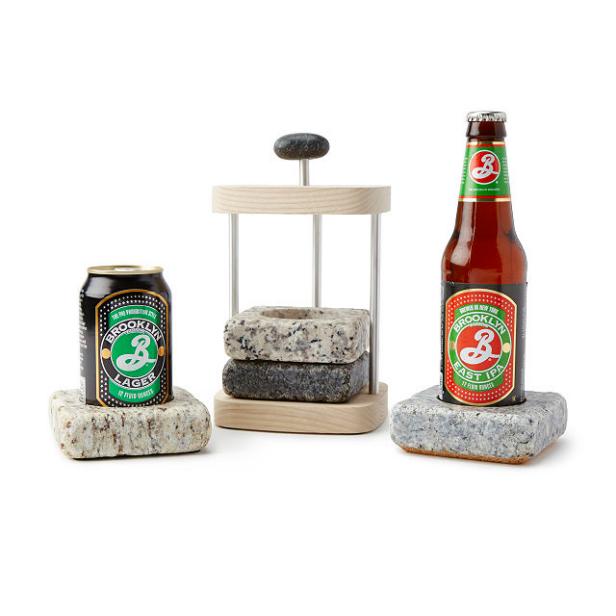
Cooking Spider
A cooking spider, also known as a wire skimmer, wok skimmer or wire spoon, is a tool that's used to drain boiling water, soups and stocks. It is also commonly used to skim off oil and frying fat from foods in pots or pans of hot liquid.
Chinese chefs will often use a "cooking spider" to remove food from boiling broth or hot oils. This helps to prevent food from splattering.
It's an indispensable tool to remove large quantities of food and is a must have in any Chinese kitchen. It is available in different shapes and can be made of a variety of materials, including metal.
A cooking spider is equipped with a long handle, which makes it much easier to lower your food into the boiling oil or water. This can help you save a lot of time, especially when you work with items such as calamari, chicken wings, or prawns.

They are also useful for separating eggs. Lauryn Tyrell, senior editor, likes the traditional wire spider with bamboo handles. However she prefers the modern utensil with a metal handle and a basket-like lattice made from thicker wire.
The Hiware Solid Stainless Steel Spider can be used in many different kitchen tasks. It will simplify your life and add a special touch to your crockpot meals. It's durable and easy to wash.
It can be purchased at Asian cookware stores or online. It is an inexpensive kitchen tool that will last a lifetime and become an essential part of any cook's arsenal.
Scooping:
A spider is preferred by many chefs to a colander for scooping out fillings of pasta, particularly ravioli and tortellini. The spider has a gentle, smooth touch and doesn't tear the shape of the filled pasta as a colander will.
Rinsing:
The test kitchen staff has a variety of ways that they like to use a spider in the crockpot, from quickly rinsing small amounts of produce, such as a handful of tomatoes, to helping separate eggs. Lindsay Strand, assistant editor of the test kitchen, said that she likes to crack eggs into the spider. This allows the yolks to stay in the spider and the whites to go into a bowl.

Spatulas & Other Kitchen Tools
If you have large families, the 42 Burners group has handy kitchen tools that can help maximize your crockpot's potential and allow you to rethink how you cook. A handheld strainer that doubles as a colander is an absolute must-have in the crockpot and this one from Hiware is our favorite.
For those who make homemade pasta, a pasta cutter tool is essential. It allows you to cut the dough in a uniform and precise manner. It is also a must-have for any pasta lover.
FAQ
Is it acceptable to ask for discount coupons when shopping?
Always try to negotiate a lower price when buying products. It is not rude to ask them if there are any discounts codes. If you're polite, they might offer you a special deal. This could help you save money in the long-term.
Why shouldn't I believe the sales hype in shops and online shops?
Some sites will exaggerate the cost of an item's initial price to make it seem like you are getting more. This is why it's important to do your research and verify the prices that are being offered. You can simply add the item to your cart so that it doesn't go missing. Finally, you can do a quick Google Search for the designer's name as well as the product type. You might be surprised at how much you actually paid for the deal. You might find the exact item on sale for less.
What are the best days for online shopping?
Sunday is the best time to shop online for clothes. There are many stores open so you can browse and find exactly what you need. Monday is the most important day of the week to purchase all you need. Do any last-minute shopping on Tuesday. Wednesday is the day you should begin shopping for Christmas. Thursday is when Easter planning should be started. Friday is the day to start planning for the summer holidays. Saturday is the time to prepare for the school holiday. And finally, on Sunday, you should finish off any remaining tasks for the week.
What are the pros and cons of shopping online?
Online shopping is a great way to save money for both the consumer and the retailer. Online shopping has many advantages. It allows consumers to shop at their own pace. There are also fewer restrictions as you don't need to visit stores to shop. There are some disadvantages. For example, online shoppers may not know exactly how much an item costs until they purchase it. This could lead to them spending too much. One disadvantage is that customers may feel more secure buying from big-box stores, as they are more used to seeing products in person. In addition, if a customer buys something online and then decides not to keep it, he or she won't have a physical copy to return. Online shopping could also make brick-and–mortar stores less competitive in order to keep their customers.
Do I really need to register a credit card number in order to shop online with it?
Registering for your credit is optional. It is possible to get discounts or special offers by registering your credit card. It is always a good idea for you to verify your identity with the bank.
How can I make smart shopping online?
Smart shopping online can help you save money but not sacrifice quality. Here are some suggestions:
First, shop around. Compare prices and find the best deal.
Consider using Ebates, which is a cash-back app. These apps work in the same way as cashback programs at physical stores. You earn points depending on how much you spend when you shop through their app. Then, you can redeem those points for gift cards or discounts.
Third, you should look out for promo codes. You can search for them at RetailMeNot.com. Enter the code at checkout to get your savings. You will instantly see your savings.
Don't forget about clearance sections. Many times you can find incredible deals at low prices on high-end brands.
How can I protect my privacy online?
It's important for consumers to know what information they are giving away when they use an online service such as Amazon.com. Asking consumers if they would like to share their personal data with Amazon is a good idea. If you don't wish to share such information, you may need to limit your shopping experience on sites you feel comfortable sharing your private details.
Statistics
- Last Black Friday, I bought a stove from Lowes at 40% off, receiving 24 months of interest-free financing (from Lowe's). (meetfabric.com)
- Your Online Purchases 79% of Americans purchased goods and services online in 2018, which is expected to exceed 90% in 2023. (meetfabric.com)
- A report from the U.S. Census Bureau found that in the first quarter of 2022, an estimated $250 billion was spent on retail e-commerce sales.1 (thebalance.com)
- The vast majority only change a password to protect privacy a few times a year (27 percent) or, more likely, never (35 percent). (pcmag.com)
External Links
How To
How to shop online safely
Online shopping is one of the most convenient ways to buy goods and services. But this convenience comes with a price. Although there are many benefits to shopping online, there are also potential risks. The greatest threat is identity theft. Identity theft is the biggest risk. Identity thieves can use your personal information (name, address and credit card number) in order to steal money or make fraudulent loans against you. They then make a profit by selling your stolen information on a black market. These tips will help you to be safe while conducting business online.
-
Use a secure website. SSL encryption is a free service offered by most online stores to protect customers' data. This means any information entered into their site, such as names, addresses, phone numbers, credit card details, etc., is encrypted so only you can see it. It makes it impossible for anyone to read what you input. When choosing which online store to do business with, ensure they have a valid certificate issued by a recognized CA. When you browse the web, look for a green padlock icon at the URL bar.
-
Never give your password away. You will be asked to confirm your email address, username, and password when you sign up for a brand new account. This information should never be given to anyone. Keep them safe! If someone takes your wallet, they may also have access to your accounts. Instead, save them securely on your computer. Your passwords should be changed at least every three to four months.
-
Keep track of all your orders. Track your orders if you are sending items to others or yourself. Many people get scammed because they think they sent something to themselves, but it was actually sent somewhere else. Before you pay shipping fees, ensure that the tracking number is checked. Do not ship anything without proof that it was delivered. If you aren’t satisfied with your service, contact the company as soon as possible.
-
You need to be aware of the person you're dealing. Many websites ask you for sensitive information, including your full name, date and birth, Social Insurance Number, bank routing number, and social insurance number. These details help them identify you, so be careful about giving them out. If you're unsure whether a website needs this information, just Google "what does need?" You will find plenty of information.
-
Pop-up windows are a danger. Pop-up windows can bombard you with offers and special deals from many sites. While some ads might seem legit, others may trick you into giving out private information. For example, an anti-virus program may ask for your credit card number, bank information, and social insurance numbers. To avoid being tricked, don't click any suspicious links.
-
Beware of phishing scams. Phishing scams use hackers to pretend to represent reputable companies and trick consumers into providing their financial information. Phishers will often send emails that appear to come from banks and retailers encouraging customers to log into their accounts and update any information. Once you've given away your information, the hacker has control over your finances. Hackers can also empty your bank accounts and transfer funds between accounts. The following resources can help you identify phishing scams.
-
Do your homework. Be sure to read the fine print before you sign anything. Clear and simple terms and conditions must be included in any contract that you sign. Read through all the information carefully, and ensure you know exactly what you're agreeing to. It is important to avoid hidden fees or charges in order to save money.
-
Look around. Shop around. Compare prices from different websites until you find a good deal. If you order multiple items, make sure to compare shipping costs. Shipping rates vary greatly depending on which website you use. For fast shipping, it's worth paying an extra.